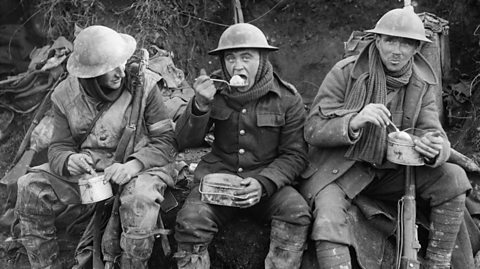How was World War One remembered in 1919?
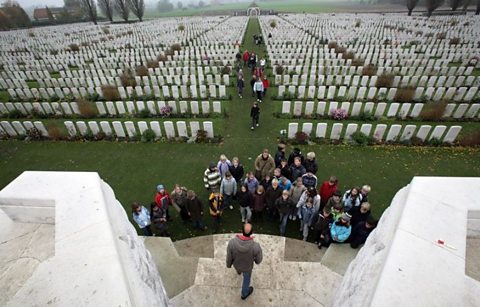
At 11 oÔÇÖclock on 11th November 1919, one year after the war, people all over the country bowed their heads.
Buses and trains stopped moving.
Shopkeepers stopped serving.
The electricity was cut off to stop trams from running.
Every year on 11 November people now stop to think about the war.

What do people use to remember the war?
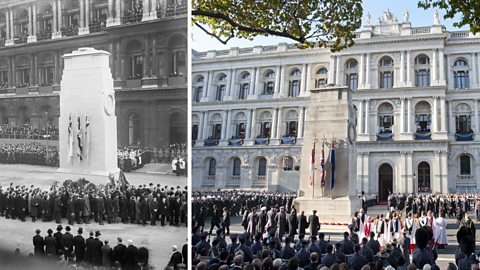
Image caption, Memorials
When the Cenotaph in London was built in 1920, people laid flowers there in memory of loved ones. The tradition continues to this day.
Image caption, Tombs
Since 1920 many have visited the tomb of the Unknown Warrior, inside Westminster Abbey. This tomb reminds people of all the soldiers that died fighting whose identities remain unknown.
Image caption, Graves
Many British soldiers were buried near the battlefields where they died. Bois-Carre British Cemetery in France contains 174 known graves and 53 unknown.
Image caption, Poppies
Poppies grew on the barren fields of World War One and are used to remember soldiers who died in battle. Paper poppies are still sold today for charity.
Image caption, Ceremonies
Large crowds gather to remember the war together. Poppies were dropped from the roof of the Menin Gate on Armistice Day, 11 November 2013 in Ypres, Belgium.
Image caption, Poetry and art
This picture shows a wounded soldier's hand-written poem and a watercolour drawing of him with his sweetheart.
Image caption, Sweets
Jelly Babies were introduced in 1918 to celebrate the end of war. Back then, they were known as 'Peace Babies'.
1 of 7
War Poetry
Some soldiers wanted to describe the horrors of the war so that people at home could understand how it felt.
Laurence Binyon was an English poet. In 1914, he wrote 'For the Fallen'.
Watch: 'For the Fallen' by Laurence Binyon
Watch and listen to 'For the Fallen' by Laurence Binyon. The poem's fourth verse is known as 'Ode of Remembrance'. It is often carved into monuments and spoken at remembrance services.
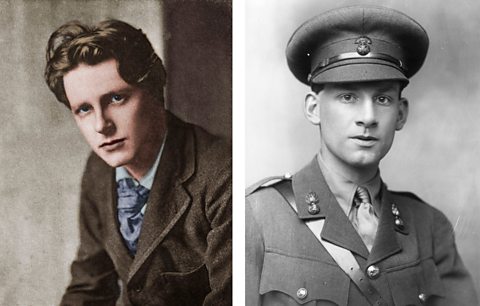
Rupert Brooke was one of the first British war poets.
He felt it was important to do your duty for your country.
His famous poem The Soldier said, "If I should die, think only this of me: that there's some corner of a foreign field that is forever England".
Siegfried Sassoon was another British soldier poet.
He thought it was wrong for humans to fight each other.
He wrote in a poem called A Letter 91╚╚▒Č that "war's a joke" and described it as "hell".
Wilfred Owen was another war poet who agreed with Siegfried's feelings.

Why do we wear poppies?
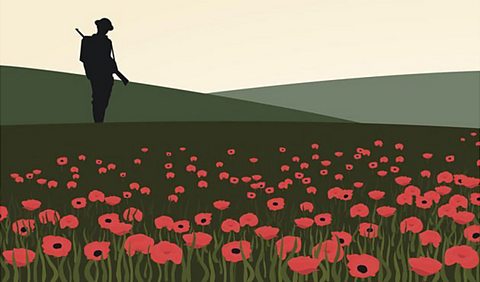
In Flanders Fields by John McCrae was a famous wartime poem. It says, "We shall not sleep, though poppies grow in Flanders Fields".
A French woman called Madame Guerin liked the poem so much that she started to sell poppies for charity in America.Another woman called Moina Michael was also saying the poppy was a way to remember those who died.
In Britain George Howson made a simple poppy design so that people who had been disabled by the war could make them.
The poppy is still worn by millions of people every November.
How has life changed since World War One?
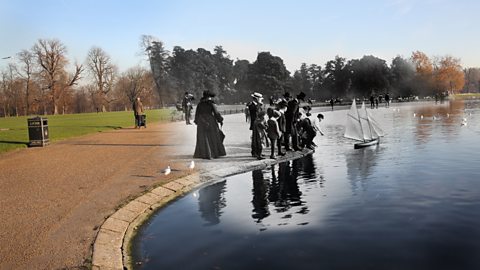
Image caption, People in the early 1900s enjoyed the green open spaces of parks and countryside, as they do today. These children are sailing a model yacht. ItÔÇÖs before the war so their fathers are with them.
Image caption, However the skylines of our cities have changed a lot. Brick and stone buildings have been replaced by skyscrapers of glass and steel. (Archive image by London Transport Museum.)
Image caption, St PaulÔÇÖs Cathedral has been part of LondonÔÇÖs skyline for over 300 years, but the shops and businesses on the surrounding streets have mostly gone.
Image caption, Some buses on the capitalÔÇÖs roads are still open topped for sightseers, but theyÔÇÖre not pulled by horses these days.
Image caption, Finished 20 years before World War One, Tower Bridge is one of LondonÔÇÖs iconic landmarks and is as much of an attraction for people today as it was over a century ago.
Image caption, Propaganda rallied all young men to join up and do their bit for King and Country. They queued along the street, determined not to miss out on ÔÇśa great adventureÔÇÖ.
Image caption, Some men happily volunteered to sign up and fight, others felt pressured to enlist. By September 1914, three quarters of a million men marched to war.
Image caption, For the first time bombs fell on Britain. German bombers struck many major cities the length of the country, from Dover in the south to Edinburgh in Scotland.
Image caption, Although shaken by air raids, civilians on the home front pulled together to support soldiers fighting on the front.
Image caption, When the armistice finally came at 11 o'clock on 11 November 1918, the guns fell silent. Every year, on the Sunday closest to 11 November, people wear poppies to remember those who died in the war.
1 of 10
Photographs of life in the war can help us see how some things have changed.
Activities
Activity 1: Quiz ÔÇô Remembering World War One
Activity 2: History Explorer game
Play this game to test your knowledge and learn even more facts about World War One.
History Explorer: Secrets through time
History Explorer: Secrets through time: KS2 History
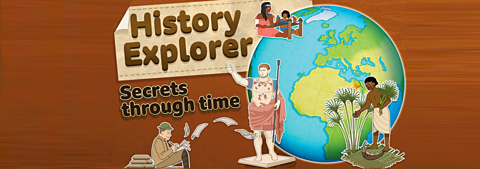
Bitesize Primary games. gameBitesize Primary games
Play fun and educational primary games in science, maths, English, history, geography, art, computing and modern languages.

More on World War One
Find out more by working through a topic
- count1 of 43
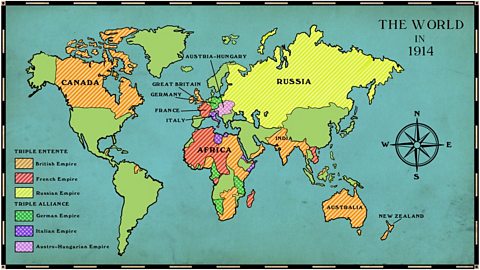
- count3 of 43
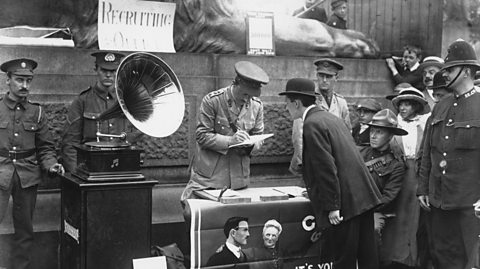
- count4 of 43
